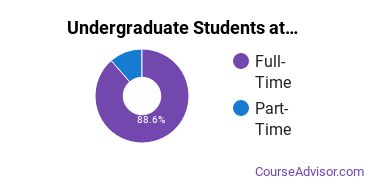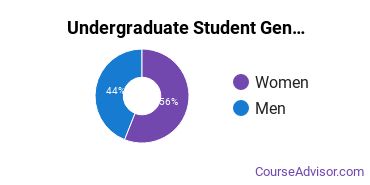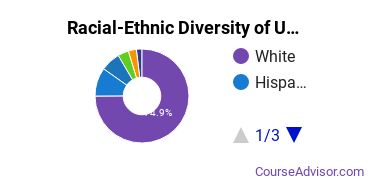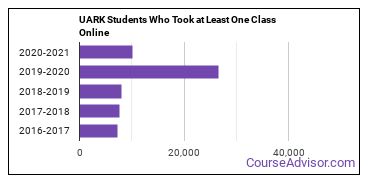University of Arkansas Overview
University of Arkansas is a public institution located in Fayetteville, Arkansas. Fayetteville is a great location for students who prefer city over country life.
What Is University of Arkansas Known For?
- The 1% student loan default rate at UARK is better than the national rate of 10.1%. That's a good sign that you may be able to pay off student loans easier than your peers at other schools can.
- Although it may not be available for every major, the doctor's degree is the highest award a student can attain at UARK.
- In <nil>, 85% of the faculty were full-time.
- A student who earns a bachelor's degree from UARK makes roughly $54,417 a year. This is 33% more than their peers from other colleges and universities.
Featured schools near , edit
Where Is University of Arkansas?

Contact details for UARK are given below.
| Contact Details | |
|---|---|
| Address: | 1125 W Maple St, Administration Bldg 425, Fayetteville, AR 72701 |
| Phone: | 479-575-2000 |
| Website: | www.uark.edu |
How Do I Get Into UARK?
You can apply to UARK online at: https://admissions.uark.edu/apply/
Admission Requirements for UARK
| Submission | Required? |
|---|---|
| High School GPA | Required |
| High School Rank | Considered but not required |
| High School Transcript | Required |
| College Prep Program | Considered but not required |
| Recommendations | Neither required nor recommended |
| SAT or ACT Scores | Required |
| TOEFL | Considered but not required |
How Hard Is It To Get Into UARK?
Approximately 39% of accepted students are men and 61% are women. The acceptance rate for men is 81%, and the acceptance rate for women is 84%.
Average Test Scores
About 26% of students accepted to UARK submitted their SAT scores. When looking at the 25th through the 75th percentile, SAT Evidence-Based Reading and Writing scores ranged between 530 and 620. Math scores were between 520 and 600.
Can I Afford University of Arkansas?
The net price is calculated by adding tuition, room, board and other costs and subtracting financial aid.
Student Loan Debt
It's not uncommon for college students to take out loans to pay for school. In fact, almost 66% of students nationwide depend at least partially on loans. At UARK, approximately 40% of students took out student loans averaging $7,864 a year. That adds up to $31,456 over four years for those students.
The student loan default rate at UARK is 1.2%. This is significantly lower than the national default rate of 10.1%, which is a good sign that you'll be able to pay back your student loans.
University of Arkansas Undergraduate Student Diversity

There are also 4,803 graduate students at the school.
Gender Diversity
Of the 21,495 full-time undergraduates at UARK, 44% are male and 56% are female.

Racial-Ethnic Diversity
The racial-ethnic breakdown of University of Arkansas students is as follows.

| Race/Ethnicity | Number of Grads |
|---|---|
| Asian | 598 |
| Black or African American | 802 |
| Hispanic or Latino | 2,124 |
| White | 16,102 |
| International Students | 415 |
| Other Races/Ethnicities | 1,454 |
Geographic Diversity
Arkansas students aren't the only ones who study at University of Arkansas. At this time, 38 states are represented by the student population at the school.
Over 118 countries are represented at UARK. The most popular countries sending students to the school are China, India, and Panama.
Online Learning at University of Arkansas
The following chart shows how the online learning population at UARK has changed over the last few years.

This school is the 4th most popular in Arkansas for online learning according to the online graduations recorded by the Department of Education for the academic year 2020-2021.
Online Growth Rankings of UARK
The average growth rate over the last four years of online students at University of Arkansas was 68.9%. This is the #540 largest growth rate of all schools that are only partially online. This refers to all students at UARK regardless of major.
When we speak of partially online, we are referring to schools whose online population is less than 50% of its total student body. Mostly online refers to those with online populations greater than or equal to 50%.
References
*The racial-ethnic minorities count is calculated by taking the total number of students and subtracting white students, international students, and students whose race/ethnicity was unknown. This number is then divided by the total number of students at the school to obtain the racial-ethnic minorities percentage.
- College Factual
- National Center for Education Statistics
- Image Credit: By Brandonrush under License
More about our data sources and methodologies.
Featured Schools
 Request Info
Request Info
|
Southern New Hampshire University You have goals. Southern New Hampshire University can help you get there. Whether you need a bachelor's degree to get into a career or want a master's degree to move up in your current career, SNHU has an online program for you. Find your degree from over 200 online programs. Learn More > |
